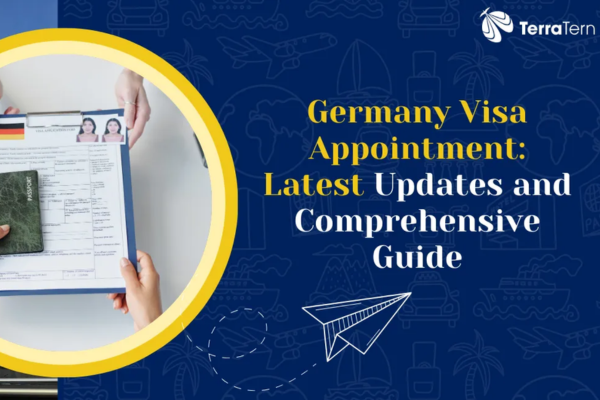Germany continues to be a top destination for skilled professionals seeking employment opportunities abroad. In 2025, the German government has introduced several initiatives to attract foreign talent, including the Skilled Workers’ Immigration Act (Fachkräfteeinwanderungsgesetz), which simplifies the visa process for qualified individuals. (en.wikipedia.org)
Understanding Germany’s Immigration Landscape in 2025
Germany’s immigration policies have evolved to address labor shortages in various sectors. The introduction of the Skilled Workers’ Immigration Act allows for a more streamlined process, including a points-based system that evaluates applicants based on qualifications, work experience, language skills, and age. (en.wikipedia.org)
Types of Work Visas for Immigrants
1. Skilled Worker Visa
- Eligibility: Requires a job offer from a German employer in a profession that matches your qualifications.
- Duration: Up to four years, with the possibility of extension.
- Path to Permanent Residency: After 21–33 months, depending on your qualifications and integration efforts. (seasonalworkvisa.com)
2. EU Blue Card
- Eligibility: For highly skilled workers with a university degree.
- Salary Requirement: Minimum annual salary of €58,400, or €45,552 for shortage occupations.
- Benefits: Faster path to permanent residency (after 21 months with B1 German proficiency). (seasonalworkvisa.com)
3. Job Seeker Visa
- Eligibility: Allows professionals to enter Germany for up to six months to search for a job.
- Requirements: Proof of sufficient financial means and recognized qualifications.
- Conversion: If a job is found, the visa can be converted into a work visa. (seasonalworkvisa.com)
📝 Application Process for a Work Visa
- Secure a Job Offer: Obtain a formal employment contract from a German employer.
- Gather Required Documents:
- Valid passport.
- Employment contract.
- Proof of qualifications.
- Language proficiency certificates (if applicable).
- Health insurance coverage.
- Proof of financial means.
- Schedule an Appointment: Book a visa appointment at the nearest German embassy or consulate.
- Attend the Interview: Submit biometric data and answer questions regarding your employment plans.
- Pay the Visa Fee: The fee is €75, payable in the local currency.
- Wait for Processing: Processing times vary but generally take 4 to 12 weeks. (seasonalworkvisa.com, unilorinforum.com, redmiprice.com.ng)
Top German Companies Offering Visa Sponsorship in 2025
Several leading German companies actively sponsor work visas for foreign professionals:
- SAP SE: Offers roles in software engineering, data science, and consulting.
- Siemens AG: recruits professionals in automation, medical technology, and engineering.
- Robert Bosch GmbH seeks talent in automotive engineering, software development, and research.
- Daimler AG (Mercedes-Benz Group): Offers positions in engineering, IT, and management.
- Bayer AG: Recruits professionals in pharmaceuticals, life sciences, and business management.
- Deutsche Bank: Offers roles in finance, risk management, and IT.
- Adidas Group: Seeks talent in marketing, design, and technology.
- Allianz SE recruits professionals in actuarial science, finance, IT, and customer relations.
- Infineon Technologies AG seeks talent in semiconductor manufacturing and engineering.
- BMW Group: Offers positions in manufacturing, engineering, and digital transformation. (careerical.com)
High-Demand Job Roles in Germany
Germany’s labor market has a high demand for professionals in the following fields:
- Information Technology (IT): Software developers, network engineers, and cybersecurity experts.
- Engineering: Mechanical, electrical, and civil engineers.
- Healthcare: Doctors, nurses, and medical technicians.
- Finance: Financial analysts, accountants, and auditors.
- Skilled Trades: Electricians, plumbers, and construction workers.
- Education: Teachers and educational administrators.
- Hospitality and Tourism: Hotel managers, chefs, and tour guides.
- Automotive Industry: Engineers and technicians.
- Agriculture and Farming: Farmworkers and agricultural technicians.
- Healthcare Support: Medical assistants and support staff. (bakeop.com, britishvisa.com.n
Tips for a Successful Application
- Tailor Your CV and Cover Letter: Customize your application to match the job description and highlight relevant skills and experiences.
- Learn German: While many companies operate in English, proficiency in German can enhance your employability and integration.
- Network: Engage with professionals in your field through platforms like LinkedIn and attend industry events.
- Stay Informed: Keep up-to-date with changes in immigration policies and job market trends.(careerical.com)
Important Considerations
- Visa Denials: Effective July 1, 2025, Germany will discontinue the informal appeal process for visa denials for Indian nationals. Applicants will need to pursue formal legal methods to contest rejections, potentially increasing complexity and duration.
- Family Reunification: Recent policy changes have introduced restrictions on family reunifications, particularly for migrants with subsidiary protection status. Naturalization
- n: The fast-track naturalization process has been abolished, extending the timeline for acquiring German citizenship to five years. (timesofindia.indiatimes.com, timesofindia.indiatimes.com, timesofindia.indiatimes.com)
🇩🇪 1. Germany’s Points-Based Immigration System 2025
In 2025, Germany implemented a points-based immigration system called the Opportunity Card (Chancenkarte) to attract non-EU skilled workers.
How It Works:
-
You score points based on factors like age, education, work experience, and German language skills.
-
A minimum score is required to qualify for job-seeking residence.
-
This system is ideal if you don’t yet have a job offer but want to enter Germany legally to look for one.
Key Criteria:
-
Recognized qualifications
-
3+ years of work experience
-
Language skills (German or English)
-
Age (under 35 earns higher points)
Learn more at: make-it-in-germany.com
2. Recognition of Foreign Qualifications
Before applying for a job in Germany, your foreign degree or qualification must often be recognized as equivalent to a German one.
-
Use the Anabin database to check your qualification status.
-
If your qualification isn’t recognized, you may need to undergo a credential assessment or take a skills adaptation course.
3. German Language Proficiency Requirements
Even though many tech and international companies operate in English, most employers and government services expect at least basic German language skills.
-
Minimum Level for Most Visas: A1–B1
-
For Blue Card & skilled work: B1–B2 recommended
-
For long-term integration and citizenship: B1–B2 required
Tip: Invest in a certified course before or after arrival (e.g., Goethe-Institut or Volkshochschule).
4. Residence Permit Registration (After Arrival)
Once in Germany, you must register your address within 14 days at your local Bürgeramt (citizen’s office) to get a residence certificate (Anmeldung).
Required to:
-
Open a bank account
-
Access health insurance
-
Apply for a tax ID
-
Sign rental contracts
5. Mandatory Health Insurance
Germany has a dual system:
-
Public health insurance (Gesetzliche Krankenversicherung) – accessible to most employees.
-
Private health insurance – for high earners, freelancers, or non-EU immigrants.
You must show proof of coverage before your visa is approved and maintain it while in Germany.
6. Cost of Living and Salary Expectations
While Germany offers generous social benefits, it’s important to budget wisely:
-
Berlin/Munich/Hamburg: €1,200–€1,800/month for modest living
-
Smaller cities: €800–€1,200/month
-
Average salary for skilled immigrants: €45,000–€65,000/year
-
Blue Card holders: €58,400+ annually (or €45,552 for shortage jobs)
🔍 Use comparison tools like Numbeo or Gehalt.de to gauge real-world living costs by city and role.
7. Bringing Family Members
Spouses and children can usually join you in Germany on a Family Reunification Visa. Spouses may also receive work rights, but:
-
Proof of accommodation and income is required
-
German language skills (A1) may be needed for your spouse
-
Some categories like Blue Card make family reunification easier and faster
8. Path to Permanent Residency and Citizenship
-
After 33 months of working in Germany with a Blue Card (or 21 months with B1 German), you can apply for permanent residency.
-
Naturalization is possible after 5 years (as of 2025), if you:
-
Speak German (B1+)
-
Are financially independent
-
Have no criminal record
-
9. Freelancers and Self-Employed Visa Options
If you’re not sponsored by an employer but want to freelance or start a business, Germany offers:
-
Freelance Visa (Freiberufler): for creatives, IT professionals, teachers, translators, etc.
-
Self-Employment Visa: requires a viable business plan and enough funds
10. Cultural and Workplace Integration Tips
-
German work culture values punctuality, structure, and direct communication.
-
You may be expected to separate work and private life strictly.
-
Participating in integration courses (Integrationskurs) helps with language and culture, and boosts PR/citizenship eligibility.
Common Pitfalls to Avoid
-
Applying without checking if the company is visa-licensed
-
Submitting incomplete documents or translations not certified
-
Ignoring the need for address registration
-
Failing to get your degree recognized
-
Not learning basic German before arrival
-
Relying on unofficial agents or recruiters
Useful Resources
| Platform / Resource | Purpose |
|---|---|
| Make-it-in-Germany.com | Official info for skilled migration |
| Bundesagentur für Arbeit | Job listings and employment support |
| Anabin Database | Check qualification recognition |
| Auswärtiges Amt (Foreign Office) | Embassy & visa procedures |
| DAAD.de | Academic visa and scholarship info |
| Jobbörse.de | Job board for Germany-based roles |
Additional Resources
- Federal Employment Agency (Bundesagentur für Arbeit): Provides information on job vacancies and labor market trends.
- Make it in Germany: A portal offering guidance on living and working in Germany.
- German Missions Abroad: Official embassy and consulate websites for visa application procedures.
Conclusion
Germany’s commitment to attracting skilled professionals offers numerous opportunities for immigrants in 2025. By understanding the visa options, application processes, and current policies, you can navigate the path to working and living in Germany effectively. Stay informed, prepare thoroughly, and leverage the resources available to maximize your chances of success.







